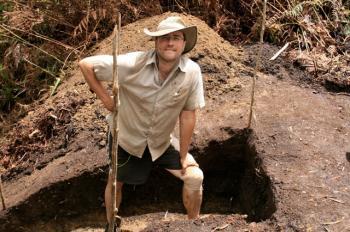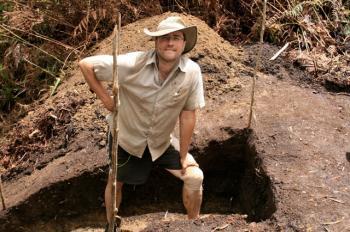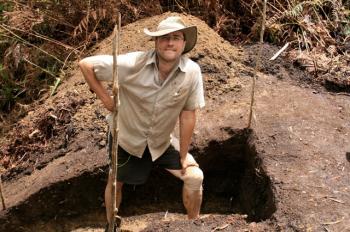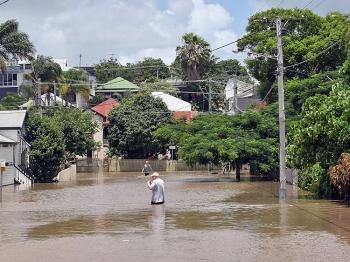The world’s earliest high-altitude settlements have been discovered—not in the mountainous ranges of the Himalayas, but in the steamy tropics of Papua New Guinea.
A team of archaeologists, which included the University of Queensland’s Dr. Andrew Fairbairn, discovered the campsites, estimated to be 44,000-49,000 years old, in the Owen Stanley Ranges that tower over Papua New Guinea’s capital, Port Moresby.
The sites, discovered at around 2,000 meters (1.25 miles), are estimated to have been settled during the last ice age, when Papua New Guinea was joined to Australia as part of the continent of Sahul. They are the highest altitude sites occupied by Homo sapiens ever recorded.
The findings were published this week in the respected journal Science.
A team of archaeologists, which included the University of Queensland’s Dr. Andrew Fairbairn, discovered the campsites, estimated to be 44,000-49,000 years old, in the Owen Stanley Ranges that tower over Papua New Guinea’s capital, Port Moresby.
The sites, discovered at around 2,000 meters (1.25 miles), are estimated to have been settled during the last ice age, when Papua New Guinea was joined to Australia as part of the continent of Sahul. They are the highest altitude sites occupied by Homo sapiens ever recorded.
The findings were published this week in the respected journal Science.






